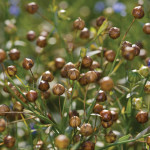This year the Interlake has been the driest part of the province, but during the late 2000s it went through some unusually wet years, and 2009 was the second in a row. This aerial photo from our Sept. 10, 2009 issue was taken Aug. 22 and showed the area around Arnes north of Gimli. That







